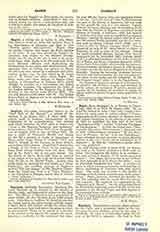

Bagot, JEAN, theologian, b. at Rennes, in France. July 9, 1591, at Paris, August 23, 1664. He entered the Society of Jesus July 1, 1611, taught belles-lettres for many years in various colleges of France, philosophy for five years, theology for thirteen years, and became theologian to the general of the society. In 1647 he published the first part of his work “Apologeticus Fidei” entitled “Institutio Theologica de vera Religione”. In 1645 the second part, “Demonstratio dogmatum Christianorum”, appeared, and in 1646 “Dissertationes theologiae” on the Sacrament of Penance. In his “Avis aux Catholiques”, Bagot attacked the new doctrine on grace, directing against it also his “Lettre sur la conformite de S. Augustin”. In 1653 his “Libertatis et gratiae defensio” was published.
In 1655 Rousse, Cure of Saint Roch (or Masure, the Cure of St. Pauls), published a little work entitled “De l’obligation des fideles de se confesser a leur cure, suivant le chapitre 21 du concile general de Latran”. Pere Bagot answered this in his “Defense du droit episcopal et de la liberte des fideles”, which he afterwards translated into Latin. A controversy arose, in which various ecclesiastics, including Msgr. de Marca, Archbishop of Toulouse, took sides against Bagot. The work was referred to the faculty of theology at Paris, which censured some of the propositions. Bagot, however, defended his doctrine before this assembly with the result that the censure was removed. He answered his opponents in the “Reponse du P. Bagot”. On his return from Rome he devoted the remaining years of his life to the congregation of the Blessed Virgin, and died superior of the professed house at Paris.
G. E. KELLY

